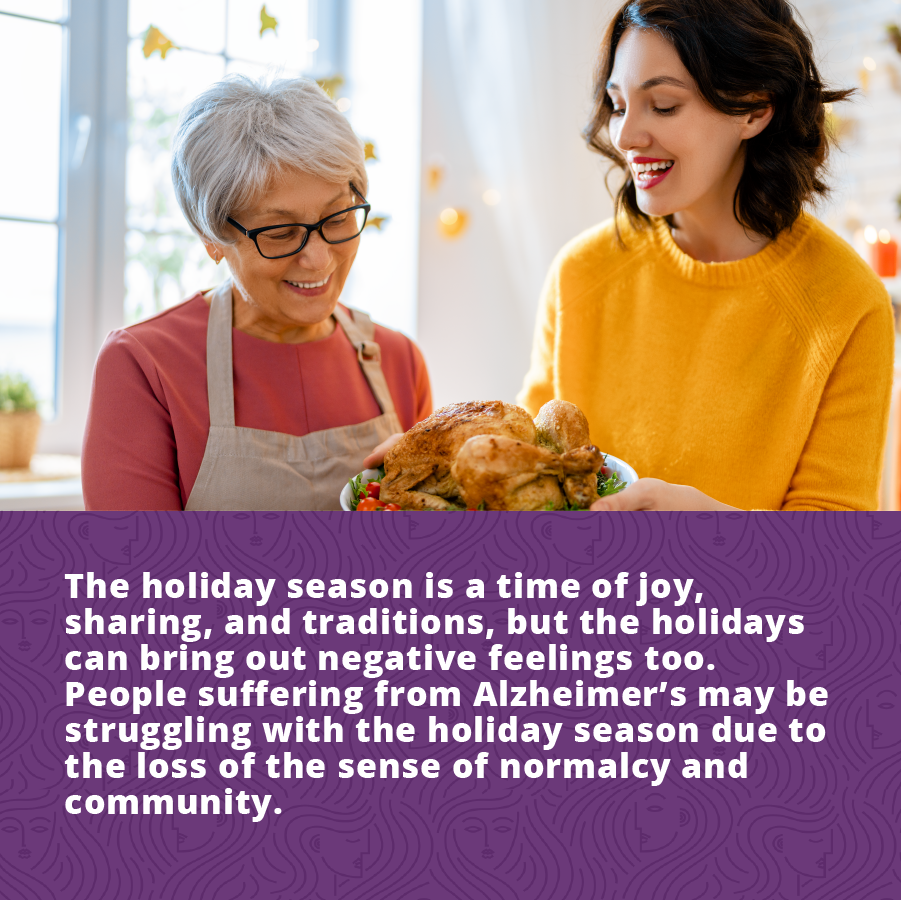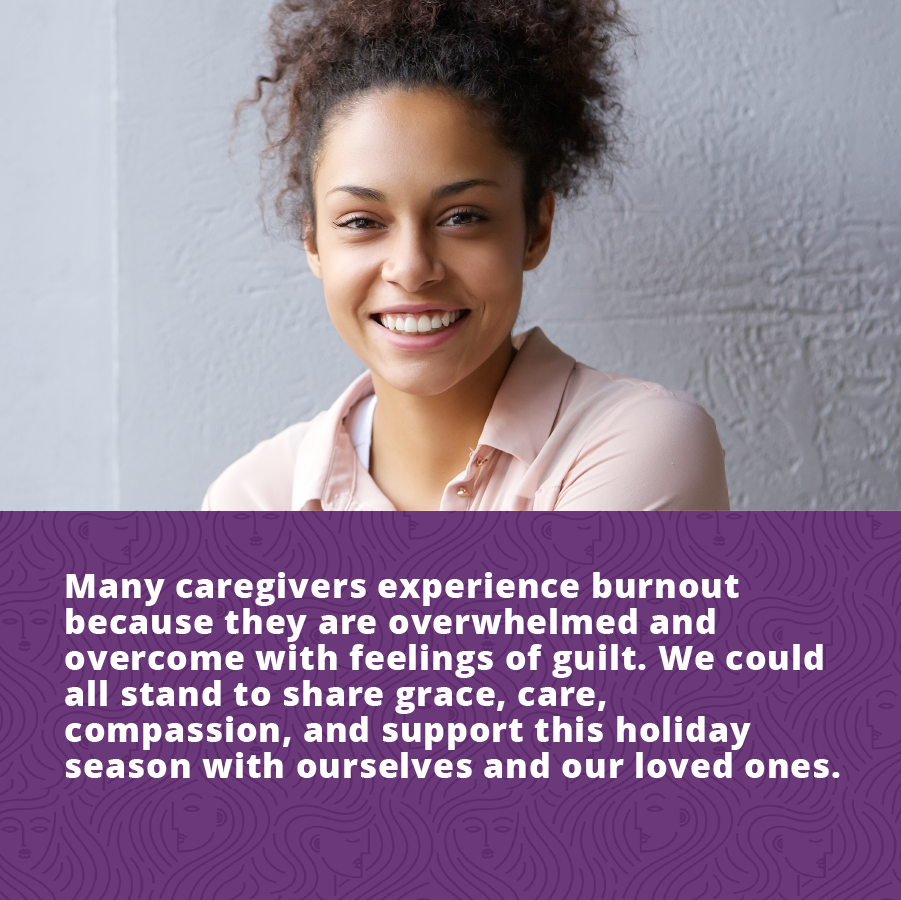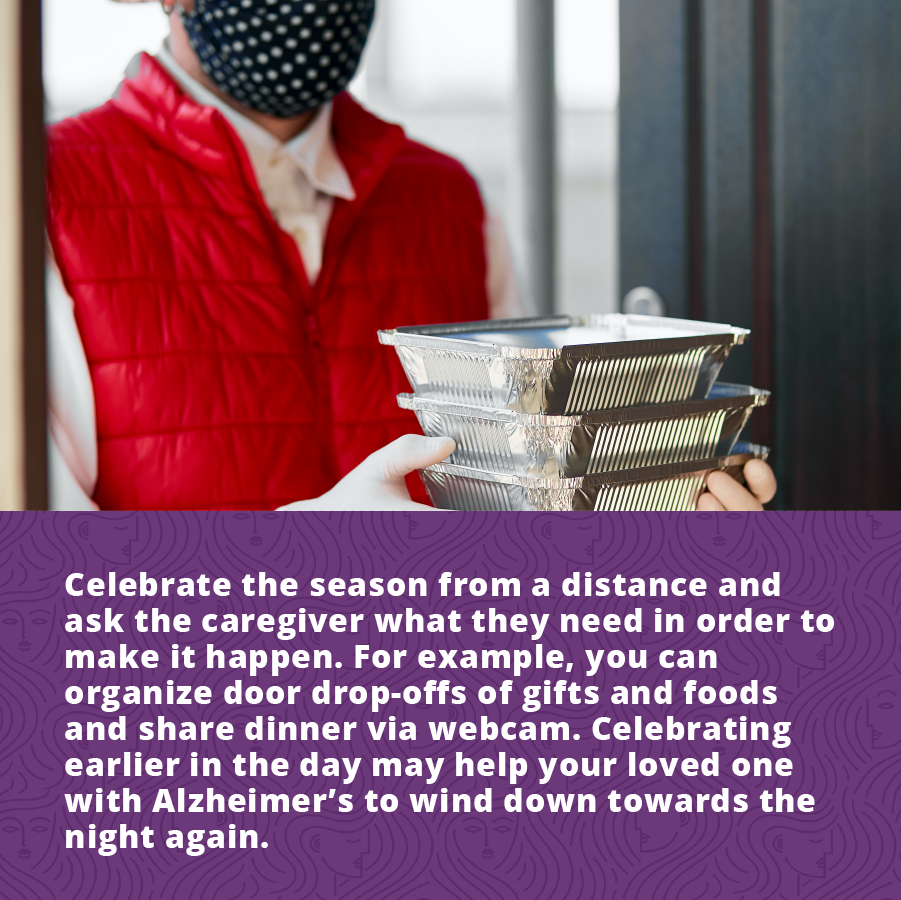Gifting Care to Caregivers of Someone with Alzheimer’s during the Holiday Season
Women’s health and Alzheimer’s disease are closely followed topics at Women’s Health Conversations. The fact that women make more than 80% of the health care decisions in this country is the driving force of why we decided to revolutionize women’s health, and there is no better example of this than Alzheimer’s disease. Not only are women more likely to develop Alzheimer’s disease, but women also account for two-thirds of Americans providing care for someone with Alzheimer’s disease.
Being a caregiver is especially difficult during the “giving season”. As many caregivers already know, it sometimes feels like the giving season never ended – we are expected to carry on as usual as the caregivers, the housekeepers, the mothers, the breadwinners, and the gift shoppers, cookie bakers, and holiday hostesses without skipping a beat. Caregiver burnout at any time of the year is real and it is justified. Whether you are a caregiver yourself who is gearing up for the holiday season, or if you know someone who is a caregiver, read on to realize how the holidays can affect both caregivers and their loved ones.

Understanding Holiday Burnout
As if the holidays weren’t hard enough to juggle, now we must do so in the middle of a pandemic. Everyone’s new normal routine with their loved ones looks a little different and it’s changing all the time. Whether you are choosing to remain isolated or celebrate with your household, the holidays have posed some unique challenges to caregivers and the ones they are caring for.
We all have a vision of what the holiday season is “supposed to be” – it’s a time of joy, sharing, traditions, and family reunions all topped with fluffy white snow. It seems like we are expected to provide the same amount of time, money, and effort that goes into making holiday traditions come to life while 1) still making them feel normal being in a world that is anything but 2) expending energy on a loved one who doesn’t stop needing it after the turkey leftovers are gone and the NYE ball has dropped. What time does that leave to take care of yourself?

It’s not all Christmas cheer, the holidays can bring out negative feelings too. Not being able to participate in holiday traditions whether it’s because of COVID or caregiving responsibilities can be heartbreaking. Whether it’s black Friday shopping, light up nights, the visit to the tree farm, or simply gathering around a table, many people cling to these little events and for feelings of normalcy and escape from everyday stressors. People suffering from Alzheimer’s may also be struggling with the holiday season this year; they too lost their sense of normalcy and community.
Lastly, many caregivers experience burnout because they are overwhelmed and overcome with feelings of guilt. We all expect ourselves to be perfect in our daily lives, and the same is true of caregivers. We could all stand to share grace, care, compassion, and support this holiday season with ourselves and our loved ones this and every holiday season.
We share these things not to make you think that the holiday season will be disastrous, but to show that it is a shared experience that many people might encounter. It’s easy to become swept up in all the commotion, but it has never been more important to show yourself or your beloved caregiver that you see their struggles and you’re ready to give. In short, the holidays are always tougher than they look at face value, especially this year, and it’s vital to remember that we are all just doing our best and dealing with the cards we were dealt. Whether you’re a caregiver for someone with Alzheimer’s or any other condition or if you just want to gift care to a caregiver you love, there are simple things you can do to help alleviate holiday-related stress.

How to Gift Care
Despite all the potential hurdles that are awaiting in the coming months, there are opportunities to connect and communicate with your family and friends too.
Constant questions about the condition of whoever is being cared for can be exhausting during cherished family time. Caregivers can choose to share this with the family beforehand (by phone call, Zoom, or better yet, holiday card) or a family member can take it upon themselves to ask in advance and share with the rest of the family.
Celebrate the season from a distance and ask the caregiver what they need in order to make it happen. For example, you can organize door drop-offs of gifts and foods and share dinner via webcam. Celebrating earlier in the day may help your loved one with Alzheimer’s to wind down towards the night again rather than confusing their schedule with a late dinner. Christmas lights can be enjoyed on a walk outside or drive through the neighborhood. No matter what the idea, communication about how this may or may not work for the caregiver and their loved one is absolutely essential to make the holidays better for everyone involved!
Lastly, especially for the caregivers, share your wishlist! It might be a home repair, a little Christmas parade to see your loved ones from a safe distance, or it might be to temporarily hold off on the big celebrations altogether. Your health and the health of your loved one trumps holiday tradition. Focus on the things that bring happiness, and don’t be afraid to make the new normal work for you.
Women’s health and Alzheimer’s disease are two topics that will never fall off of our radar at any time of the year. Remember to thank caregivers with your words and with your actions to make the holidays more manageable. We’ll even start it off – we see your efforts, we thank you, and wish you a lovely holiday season.
https://www.alz.org/help-support/resources/holidays
https://www.thiscaringhome.org/caregiver-burnout-is-worse-during-christmas-the-holiday-season/
https://www.caregiver.org/caregiving-and-holidays-stress-success

